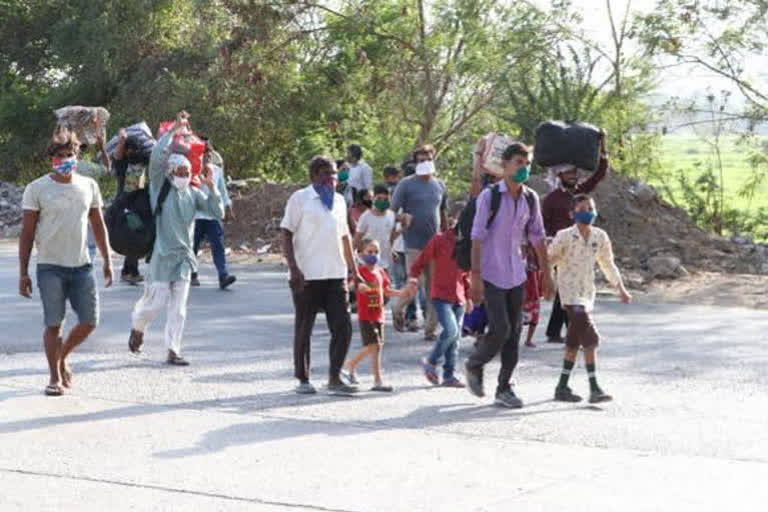New Delhi: Two policy options a one-time cash transfer, and provision of basic food supplies per person from the public distribution system for three months before some industrial activity restarts -- can help tackle themigration labour problem, according to a report.
Tackling the migration labour problem is partly economic and partly administrative and the respective states would have to scale up testing and medical facilities to contain the spread of the pandemic, and immediately provide a one-time financial relief that can partly offset the wage loss, a joint report by the Council on Energy, Environment and Water and the National Institute of Public Finance and Policy said.
However, providing such relief will require identification and a direct benefit scheme and "two policy options would be most effective in such a situation -- a one-time cash transfer, and provision of basic food supplies per person, from the PDS (public distribution system) for three months, before some industrial activity restarts," it said.
It said distributing money through direct benefit transfer (DBT) and food via the PDS will adversely impact the finances of state governments, especially in Uttar Pradesh, Bihar, Jharkhand and West Bengal, as they are home to almost all migrant workers.
"However, this fiscal measure is an essential relief intervention to prevent millions of workers and their families from slipping into further distress," it said.
Read more:RBI Guv meets heads of rating agencies to seek macroeconomic assessment
It said the road to recovery from the COVID-19 pandemic depends on the exit strategies from the lockdown and post-lockdown public finance would have to focus on two areas fiscal stimulus to alleviate the adverse impact on firms, self-owned enterprises, and migrant workers; and structural economic recovery through stabilisation of financial institutions and inflation rates, and increased rate of economic growth.
Factory and establishment survey is critical to assess employment conditions in organised as well as unorganised sectors and a quick survey of registered factories and informal self-owned enterprises could estimate the extent of job loss and likelihood of closure.
On charting a strategic road to recovery, the report said formulating a post-pandemic recovery map for India requires assessing the immediate distress to daily/ casual workers in sectors that have taken the maximum brunt of the lockdown, and preventing the closure of firms and establishments in the near future.
